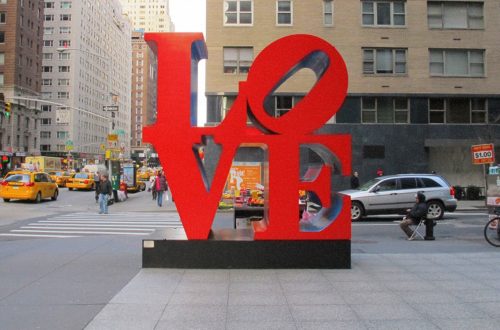Hey, Clay.
Am I Black or not?
My mother is white, and my father is Black. I’m biracial, identify as Black, but look white. Black people always tell me I’m not Black enough, it’s like I constantly have to prove my Blackness. “You like hard rock? Obviously you’re not Black enough.” Oreo cookie.
But I’m not white. I’m always the token to white people “Oh, I have a Black friend!” “You HAVE to like Hip Hop!” “You’re Black, can you tell me why Black people always [place ignorant comment here].”
I’ve heard some people say being biracial must be the best of both worlds, but it’s like the worst. I don’t fit in enough in either side. White people say I’m Black, Black people say I’m not Black enough.
Am I Black or not, people? Make up your minds!
And here’s the stupid thing: My Black father ain’t all Black! There ain’t a Black person in America who’s 100% Black at this point. Slave women were raped, there were Black people a long time ago who were “passing” but had to hide because they were still Black. How much white does it take to not be Black anymore? Is one Black parent enough? One Black grandparent? My grandfather is even white, so my dad is technically biracial as well, but he *looks* Black, so he counts as Black, so he doesn’t have to prove it.
Who draws the line? Who says “Oh, your dad counts, but now you’re too white. Sorry, you have to turn in your Black card and listen to Meghan Trainor from now on.”
It’s all so stupid.
– All Mixed Up
Hey, All Mixed up.
Reading about your experiences in the face of other’s ignorant statements and callous behavior breaks my heart. While I haven’t walked a yard in your shoes, I can relate to you suffering erroneous comments, indelicate questions, and “prove yourself” challenges ad nauseam.
As a black man who grew up in the south, I didn’t meet anyone who professed to being of biracial (or mixed) heritage until I was in my twenties. I live in Florida, go figure. And I was one of those people who thought biracial people received the best of both worlds, genetically and socially. From my vantage point, for a person of color to have the slightest racial advantage in America was better than none at all. In light of your letter, I now realize that is not necessarily the case. And for that I apologize.
I, too, have encountered many who have preconceived notions of who black men are and I strive to shatter those racial stereotypes or any other group someone might try to lump me into.
Every day is a remedial lesson in not letting other people’s opinions define me. I accept that others will make incorrect assumptions about me. People notice those who are different and quickly want to slap a label on us or put us in a box without getting to know the person.
You don’t have to prove a thing to anyone. Period.
It’s unfortunate that a part of the population chooses to hold an opinion about you based on their limited perception of race or that it weighs so heavily on their feeble minds that they demand proof.
That’s not your problem.
You can spend your precious time on Earth trying to meet people’s expectations, if you like. Or you can exceed their expectations by simply embracing and being who you are.
I’ve spent more time than I care to reveal trying to be who others thought or wanted me to be. All that wheel-spinning left me exhausted, with a blurred sense of self, and no closer to becoming who God created me to be.
You have people in your life right now who love you for who you are. I’m sure those people don’t care where you say you fall on the color wheel. The color of your skin and that of your parents is but a small part of who you are. Allow them to know you on the content of your character.
It all comes down to this: does it matter to you where you fall on the color wheel?
The fact is your racial make-up is multi-faceted and has manifested itself in a way that’s different from most people. The public will have an opinion about your racial identity, but remember, like the saying goes: opinions are like [insert favorite less honorably perceived body part here], everybody has one.
Be who you are.
You are the sole person who gets to say, “I am …” in reference to you. Only you can draw the lines that define you, unless you choose give that honor to someone else
Encouraging you to embrace all that you are,
Clay.
If you have a situation that you’re currently dealing with that you’d like me to address, send an email (with a clever pen name instead of your real name) to me at heyclay@clayrivers.com, and tell me all about it. I’ll read through the submissions, pick one, and on Thursdays I’ll post the chosen letter along with my response here on my blog, my Facebook author page, and my Twitter account. Rest assured, I will not publish email addresses. Ever.
And if you enjoyed this post, be sociable and share it with others.





Erik Deckers says:
Good advice. I think All Mixed Up gets to say who they are. I don’t. It’s not up to me to say “You are X.” If someone identifies as black, let them be black (Rachel Dolezal notwithstanding).
I think the reason people like to put people in categories is because it helps THEM understand the world better. Unfortunately, not everyone’s brains can handle a lot of different categories, or a lot of cognitive dissonance. This is why people don’t like “gender fluid,” or get upset when a man looks like a woman, or a woman looks like a man.
Cast that same thinking over to race, and I can see why All Mixed Up is getting a lot of these questions and demands of “proof.”
AMU, *you* draw the line. You get to say who you are. And I’ll go along with whatever you tell me.
(Nice letter, Clay!)